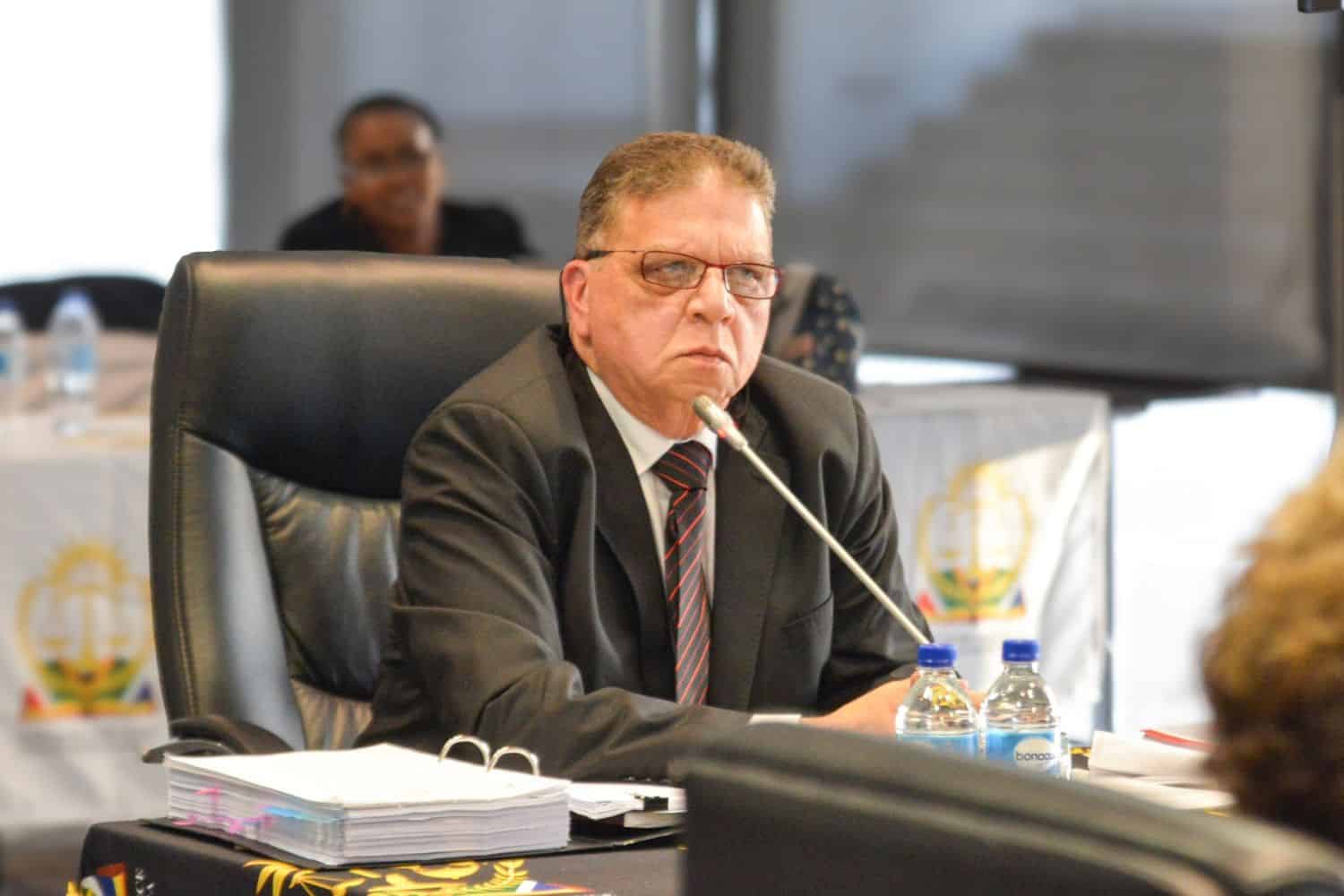Dr Chris Ndzengu said throughout “this saga” Parker had the opportunity to apologise, but did not.

Suspended Western Cape Judge, Mushtak Parker. Picture: Picture: RSA Judiciary
The evidence leader in the Judicial Conduct Tribunal (JCT) against suspended Western Cape Judge Mushtak Parker said that the tribunal has recommended to the Judicial Service Commission (JSC) that the judge be impeached.
The tribunal, chaired by retired Judge President Bernard Ngoepe, heard closing arguments in the “fact-finding” mission on Parker’s conduct.
Charges against Judge Mushtak Parker
Parker faces two allegations of misconduct – one from the 10 fellow judges and another from the Cape Bar Council, both relating to dishonesty.
In February, the tribunal heard testimony about how Parker alerted other judges on the Western Cape bench to an alleged assault by then judge president of the division, John Hlophe.
However, several of Parker’s colleagues claimed he had given inconsistent accounts of the incident.
WATCH: Evidence leader Dr Chris Ndzengu’s closing remarks
Dr Chris Ndzengu, the evidence leader in the Judicial Conduct Tribunal against suspended Western Cape Judge, Mushtak Parker has submitted that the tribunal recommend Parker’s impeachment to the Judicial Service Commission. @TheCitizen_News pic.twitter.com/hDoFInukJ9
— 𝙵𝚊𝚒𝚣𝚎𝚕 𝙿𝚊𝚝𝚎𝚕 ⚡️ (@FaizelPatel143) April 29, 2025
Retraction
He allegedly conceded “soon after” the alleged assault, he had realised the events might not have unfolded the way he initially perceived.
If proven, Parker’s conduct would be seen as bringing the judiciary into disrepute.
ALSO READ: Complaints against high court judge referred to Judicial Conduct Committee
Impeachment
In his closing arguments, evidence leader Dr Chris Ndzengu said throughout “this saga” Parker had the opportunity to apologise, “but an apology has not been forthcoming at all”.
“In conclusion, chair, my submission is that the respondent in this matter rendered himself guilty of misconduct as set out in the evidence. He did not dispute or refute any allegations which have been placed before this tribunal.
“Accordingly, I urge the tribunal to recommend to the JSC that the provisions of Section 177(1)(a) of the Constitution be invoked,” Ndzengu said.
Distrust among judges
Ndzengu earlier said the retraction by Parker created distrust among the judges, with his colleagues refusing to share the bench with him.
Some of Parker’s colleagues on the bench charged he had given materially inconsistent accounts of the incident.
“And we’ve heard thoroughly, all the justices confirming one aspect that the assault took place. And that is the truth. And since it took place, the respondents’ change of tact, indicating that it never took place, led to the stressful tension within the bench in Cape Town, to the extent that a number of justices resolved not to sit with the respondent or share the bench with him.
“That is the consequence of untruth,” Ndzengu said.
Ndzengu said the only account that all justices have corroborated is that Hlophe assaulted Parker and that the version that no assault had taken place cannot be tested.
Assault allegation
The physical assault allegation was part of a scathing complaint lodged by Hlophe’s deputy, Judge Patricia Goliath, in January 2020 to the JSC.
Goliath said it was brought to her attention that Hlophe had allegedly physically assaulted one of his unnamed colleagues and the judge wanted to proceed with a criminal complaint. But another colleague persuaded him not to go ahead with it.
Goliath accused Hlophe of “gross misconduct” and of compromising the proper functioning of the court.
In March the same year, Judge André le Grange wrote to Hlophe, saying he refused to preside over cases with Parker owing to a “prevailing climate of untruthfulness”.
ALSO READ: Judicial Conduct Committee recommends a tribunal probes complaints against judge
Download our app




